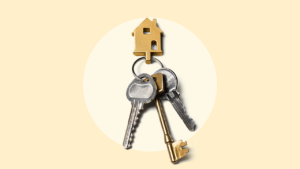What is a mortgage loan originator?

Key takeaways
- A mortgage loan originator (MLO) is a licensed professional that helps mortgage borrowers understand loan options and guides them through the loan application process.
- A mortgage loan originator could work for one lender, or act as a broker and work with a wholesale lender or multiple lenders.
- Mortgage loan originators do not decide whether to approve your loan. That decision is made by a separately licensed underwriter.
What is a mortgage loan originator?
A mortgage loan originator (MLO) is a licensed professional that helps borrowers obtain a mortgage to purchase a home or to refinance an existing loan. From first contact to preapproval to loan application and on through to closing, MLOs help borrowers move through the mortgage origination process as smoothly as possible. They can work for a bank, credit union or other lending institution, large or small.
MLOs are sometimes known simply as LOs. You might see this abbreviation used in place of “loan originator” or “loan officer.” Generally, both terms refer to a licensed MLO, although loan originator could also refer to the entity or institution the MLO or LO works for.
What does a mortgage loan originator do?
A mortgage loan originator helps you understand whether you’re eligible for a mortgage, what options might be available to you and how to complete a loan application. Their work involves collecting your credit and financial information, assessing your needs, negotiating rates and submitting your application for underwriting.
An MLO does not decide whether to approve you for a loan or how much money to lend. That part is left up to the lender’s underwriting department, which evaluates your risk as a borrower.
Since 2008, loan originators have been subject to stricter state licensing and other requirements, including the mandate to act in borrowers’ best interests whenever possible. That said, you shouldn’t ever feel pressured by an MLO to commit to a mortgage without understanding what the offer entails.
Types of mortgage loan originators
- Mortgage banker or loan officer: A mortgage banker or loan officer works directly for an institution that provides the funds for the mortgage, such as a bank, credit union or independent lender like Rocket Mortgage. They serve as a primary point of contact between you and the institution. Note that some institutions refer to their bankers or loan officers as loan “advisors” or “specialists.”
-
Mortgage broker: A mortgage broker is not employed by a specific institution or lender, but rather works with multiple institutions or a wholesale lender to match a borrower with a mortgage.
In some cases, an institution or lender itself might be referred to as an originator. This simply means it creates and funds loans.
Tips to compare mortgage loan originators
In today’s housing market, it might be tempting to focus solely on finding an MLO that quotes you the lowest rate possible. Keep the bigger picture in mind, however.
“Chasing the lowest rate can lead to your mortgage loan officer spending more time trying to find the perfect number than advising you on what you should be looking for in your loan,” says Beverly Hankinson, senior vice president, mortgage loan advisor manager at Frost Bank. “It’s more important to find a Realtor who understands your needs and finds homes that match your checklist, paired with an advisor who helps you identify a home price that fits your budget and comfort level. These two factors matter the most, since you can always refinance later if rates drop.”
Here are more tips when comparing MLOs:
- Ask about their experience. Have they worked with borrowers in situations similar to yours? Do they specialize in a certain loan product? Be sure to verify their license, as well. You can use the Nationwide Mortgage Licensing System & Registry (NMLS) consumer database to view active licenses by name, company or lender, location or NMLS ID.
- Don’t be afraid to clarify the details. Will the MLO provide a prequalification or preapproval? (There’s a difference.) Will you qualify for any down payment assistance or lender credits? How long is the rate lock period, and how much does it cost to lock? Your MLO should be able to answer these questions and more.
- Set expectations. One of the main responsibilities of an MLO is to keep the origination process on track. As such, your MLO should be communicative — even overly so — about the various steps in the process, as well as readily available when you have questions. If they’re unresponsive, it’s OK to move on to a different lender and MLO — even if you already locked in your rate.
FAQ
Why we ask for feedback Your feedback helps us improve our content and services. It takes less than a minute to complete.
Your responses are anonymous and will only be used for improving our website.







